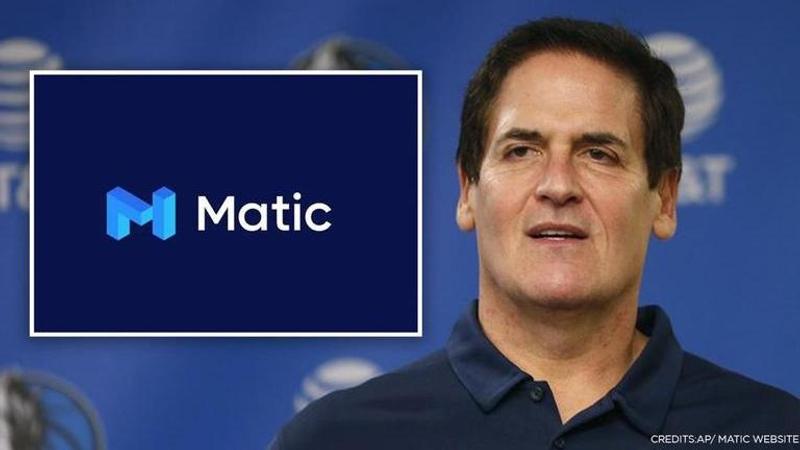Published 09:12 IST, May 27th 2021
US Billionaire Mark Cuban invests in Mumbai's $13 Bn 'sidechain' Polygon Cryptocurrency
A US-based entrepreneur and tech billionaire Mark Cuban invested an unrevealed amount in the Indian Cryptocurrency platform, Polygon which is a blockchain start

In a recent development in the cryptocurrency community, a US-based entrepreneur and tech billionaire Mark Cuban invested an unrevealed amount in the Indian Cryptocurrency platform, Polygon which is a blockchain startup. Mumbai-based blockchain project Polygon (previously known as Matic) is a protocol and a framework for assembling Ethereum-compatible blockchain networks. The startup maps accessible resolutions on Ethereum aiding a multi-chain Ethereum ecosystem.
Until a few years ago, supposedly, the crypto community was viewed as an obscure medium linked with notorious individuals utilising crypto capital for illicit activities whereas its popularity has fostered the development of a whole crypto ecosystem.
Top 20 Crypto Coins Globally
Polygon was created by Jayanti Kanani, Sandeep Nailwal, Anurag Arjun, and Mihailo Bjelic in 2017 with an intention to create an alternative to Ethereum's Blockchains or 'sidechains' to tackle its network issues. Aiming to provide speedy transactions and costs along with existing congested blockchains, Polygon has crossed the market capitalisation of over USD 10 Billion and is among the top 20 crypto coins worldwide.
In fact, Mark Cuban's official website categorised its investment in Polygon as a "well-structured, easy-to-use platform" for Ethereum scaling and infrastructure development".
Cuban's website said, "Polygon is the first well-structured, easy-to-use platform for Ethereum scaling and infrastructure development. Its core component is Polygon SDK, a modular, flexible framework that supports building and connecting Secured Chains like Plasma, Optimistic Rollups, zkRollups, Validium etc and Standalone Chains like Polygon POS, designed for flexibility and independence. Polygon’s scaling solutions have seen widespread adoption with 250+ Dapps, ~76M txns and ~790K unique users."
What Is The Need For Such a Sidechain?
Cuban is the owner of the Dallas Mavericks basketball team and is one of the main “shark” investors on the American startup reality show “Shark Tank”.
Unlike decreed currencies regulated by a central government, cryptocurrencies are decentralised — meaning, a central authority does not control its demand, supply or track transactions.
For example, a decentralised system requires that every computer running Bitcoin’s program (called “node”) manages a ledger of details regarding every Bitcoin transaction made anywhere. Since every user has a copy of the ledger, no one user can alter the records of Bitcoin transactions. However, if several ledgers were out of sync, it would make the entire system and its records unreliable. To ensure that all users keep their ledgers up-to-date, Bitcoin uses a combination of cryptography and economic incentives.
Ethereum is the blockchain platform of choice but it obviously has drawbacks. According to Polygon, Ethereum Blockchain limits at
- Low Throughput
- Poor UX (gas, delayed PoW finality)
- No sovereignty (shared throughput/clogging risk, tech stack not customizable, governance dependence)
- Several projects explore Ethereum-compatible blockchains as a way to mitigate said limitations while still leveraging Ethereum’s thriving ecosystem. However, there is no specialized framework to build such blockchains nor a protocol to connect them. This introduces significant development challenges and causes ecosystem fragmentation.
Updated 09:12 IST, May 27th 2021




